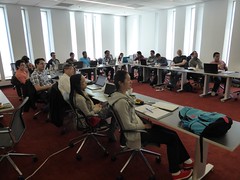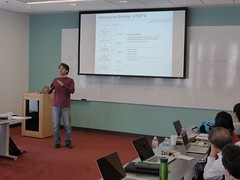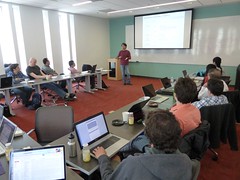We are pleased to announce that Drs. Francis Valiyaveetil and Andrzej Rajca and their research teams have officially joined the Consortium. Valiyaveetil and Rajca began their collaborations with the MPSDC as Associate Members, and are now participating as active members of the Membrane Protein Expression/Purification Core.
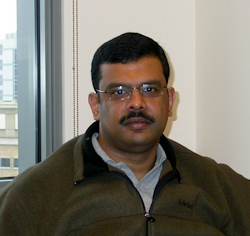 Dr. Francis Valiyaveetil is Assistant Professor of Physiology & Pharmacology at Oregon Health & Science University. The Valiyaveetil lab studies potassium channels, which are integral membrane proteins that catalyze the selective conduction of K ions across biological membranes. While a great deal of research has been focused on these channels, fundamental questions regarding the mechanism of ionic selectivity and gating remain. Valiyaveetil”s team has developed a unique combination of methods to address these questions. Their methods include the use of chemical synthesis to introduce precise chemical changes in the channels, x-ray crystallography to determine the structural effects and electrophysiology to determine the functional effects of these changes. Using this multidisciplinary approach they hope to explain the mechanism of ion selectivity and channel gating.
Dr. Francis Valiyaveetil is Assistant Professor of Physiology & Pharmacology at Oregon Health & Science University. The Valiyaveetil lab studies potassium channels, which are integral membrane proteins that catalyze the selective conduction of K ions across biological membranes. While a great deal of research has been focused on these channels, fundamental questions regarding the mechanism of ionic selectivity and gating remain. Valiyaveetil”s team has developed a unique combination of methods to address these questions. Their methods include the use of chemical synthesis to introduce precise chemical changes in the channels, x-ray crystallography to determine the structural effects and electrophysiology to determine the functional effects of these changes. Using this multidisciplinary approach they hope to explain the mechanism of ion selectivity and channel gating.
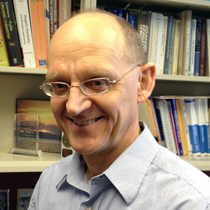 Dr. Andrzej Rajca is Charles Bessey Professor of Chemistry at University of Nebraska. The Rajca laboratory research interests lie in the area of organic and biomaterials chemistry. The underlying theme of the laboratory”s mobgames research is rational design and synthesis of new materials (molecules and polymers) with magnetic and optical properties. Rational design of new structures and materials (molecules and polymers) with targeted properties are implemented using the tools of organic synthesis, crystallography, magnetic resonance spectroscopy (NMR and EPR) and imaging (MRI), as well as magnetometry (SQUID), circular dichroism (CD) spectroscopy and multiangle light scattering (MALS).
Dr. Andrzej Rajca is Charles Bessey Professor of Chemistry at University of Nebraska. The Rajca laboratory research interests lie in the area of organic and biomaterials chemistry. The underlying theme of the laboratory”s mobgames research is rational design and synthesis of new materials (molecules and polymers) with magnetic and optical properties. Rational design of new structures and materials (molecules and polymers) with targeted properties are implemented using the tools of organic synthesis, crystallography, magnetic resonance spectroscopy (NMR and EPR) and imaging (MRI), as well as magnetometry (SQUID), circular dichroism (CD) spectroscopy and multiangle light scattering (MALS).
According to Robert Nakamoto, PI of the Protein core, Rajca and Valiyaveetil will play a pivotal role in the core”s ongoing research activities: “Andrzej Rajca provides expertise in organic synthesis of nitroxide-containing compounds, and Frances Valiyaveetil is developing in vitro methods for synthesis and folding of membranous polypeptides. These investigators are collaborating with Protein Core members to develop methods for incorporation of spectroscopic labels directly into target proteins.”
Welcome, Andrzej and Francis!

 Our first speaker is Robert Stroud, Professor of Biochemistry & Biophysics and Pharmaceutical Chemistry at the University of California at San Francisco. At the Stroud lab, scientists seek to understand molecular mechanisms of certain key biological processes, as well as signal transduction between processes at the level of protein structure, dynamics, and mechanism. In addition to his posting at UCSF, Dr. Stroud is also the director of the
Our first speaker is Robert Stroud, Professor of Biochemistry & Biophysics and Pharmaceutical Chemistry at the University of California at San Francisco. At the Stroud lab, scientists seek to understand molecular mechanisms of certain key biological processes, as well as signal transduction between processes at the level of protein structure, dynamics, and mechanism. In addition to his posting at UCSF, Dr. Stroud is also the director of the 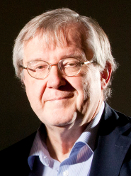 Our second keynote speaker is one of our very own Consortium members: Klaus Schulten, Swanlund Professor of Physics at the University of Illinois at Urbana Champaign. Professor Schulten is a full-time faculty member in the Beckman Institute and directs the
Our second keynote speaker is one of our very own Consortium members: Klaus Schulten, Swanlund Professor of Physics at the University of Illinois at Urbana Champaign. Professor Schulten is a full-time faculty member in the Beckman Institute and directs the 